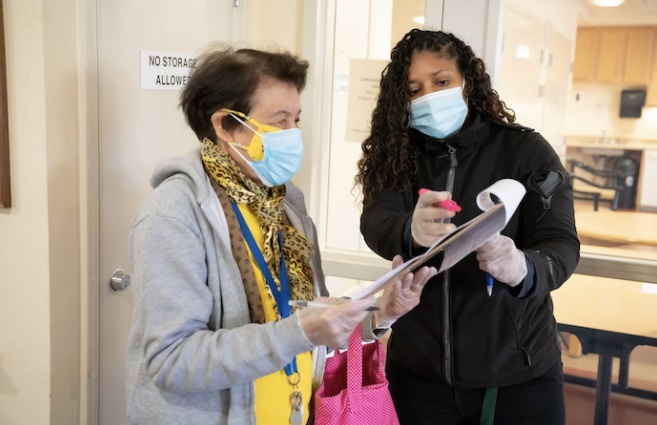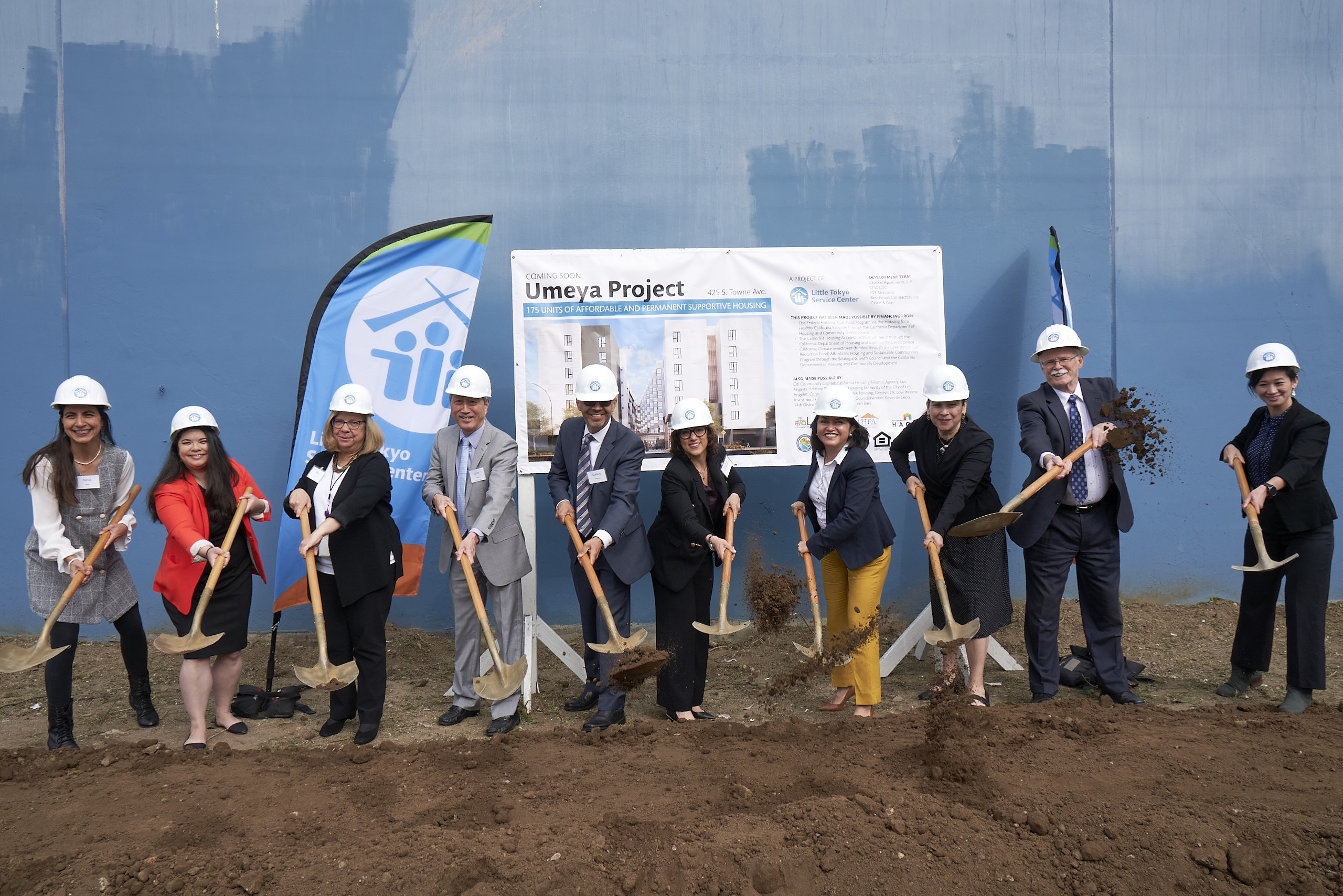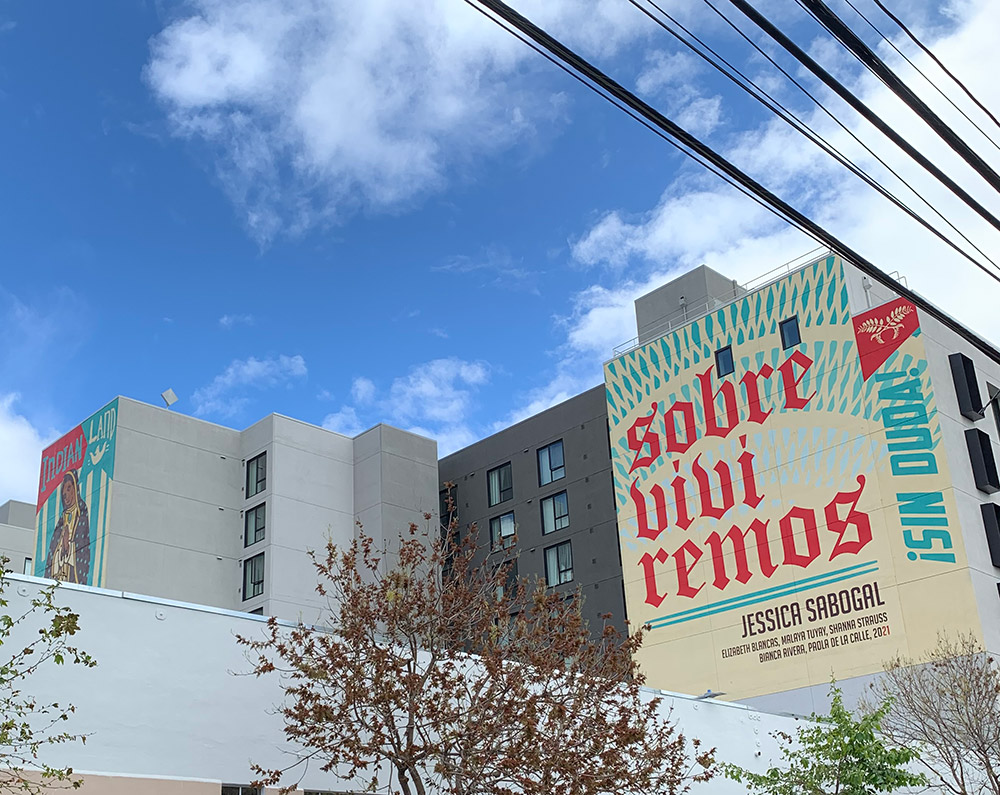Philanthropy is increasingly tasked with solving complex community challenges like the need for more affordable homes, equitable access to economic opportunity and stronger mental and physical healthcare services. As these issues become more urgent, how can grantmakers help communities drive actionable change?
Key lessons learned from nearly 45 years of sustained investment

Throughout NeighborWorks America's history, we have led with community first.
Across the country, communities have been seeking solutions to increasingly complex challenges while navigating a divisive national dialogue that has filtered down to the local level. The challenges can seem overwhelming, the consequences far-reaching and the ways to support change difficult to discern. And yet, in an urban food desert in the Midwest, a grocery store now provides residents with access to affordable and nutritious food. In Florida, a historically Black neighborhood with no healthcare services now has a mobile health clinic. In rural Vermont, low-income families are building generational wealth by purchasing their first home through a shared equity housing model.
As we navigate the wake of the pandemic and work toward equity, we've learned that a comprehensive community development approach to change works best. With this philosophy, which centers strong partnerships, trust with residents, and a deep commitment to place, communities can respond more nimbly and productively to challenges. And when we're talking about concerns like natural disasters, pandemics or community crises, that makes a significant difference in meeting emergency needs in a timely and effective way and moving long-term priorities forward.
Comprehensive community development provides a strong framework for funders to invest in complex solutions to complex challenges at multiple scales and across a range of geographically diverse places. Through a shared vision, unified strategy and collaborative structure to attract and deploy resources, comprehensive community development breaks down barriers, leading to more inclusive and equitable engagement and allowing for issues of greatest importance to residents to rise to the top. Comprehensive approaches are working — and they're more critical than ever if communities are to effectively tackle the challenges before them today.
Defining a comprehensive community development approach

NeighborWorks America recognizes comprehensive community development's unique ability to meet today's issues with an actionable and replicable approach.
Working side by side with its network of nearly 250 nonprofit organizations, NeighborWorks America assists and supports nonprofits as they craft, test and elevate comprehensive strategies to overcome community challenges while focusing on the strengths and uniqueness of individual places. Throughout our history we have led with community first, operating at the forefront of place-based work thanks to the unique vantage point we gain from our ability to see what is happening in communities across the country in real time.
In 2022, NeighborWorks accelerated investments in comprehensive community development as part of our foundational commitment to supporting healthy, more equitable communities of opportunity. NeighborWorks made this decision in recognition of comprehensive community development's unique ability to meet today's issues with an actionable and replicable approach.
NeighborWorks established a set of principles that describes the core elements of strong comprehensive approaches to serve as a framework that recognizes complexity and allows for customization across places and scale. While there is no one-size-fits-all solution to the many challenges facing communities across the country, comprehensively designed approaches help community leaders anywhere foster change in an incremental and accessible way that leads to long-term improvement — and do so in a way that brings people together instead of deepening divides. Two-thirds of the NeighborWorks network is applying this framework, with NeighborWorks supporting local initiatives through grants, capacity building and training to accelerate opportunities and empower local leaders. From this vantage point, we've gained important insight into how to successfully deploy resources for comprehensive community development.
- Flexible funding — Comprehensive approaches are not linear. They require constant assessment and adjustment as work unfolds. They also require a long-term, sustained commitment for meaningful change to occur. NeighborWorks structures its investments as flexible, unrestricted support that is driven by the soundness of a community's plan and approach, rather than by singular, time-bound outcomes. This flexibility in funding gives communities the space to be nimble, react in real time to a community's changes, and build the organizational structures that can sustain the work through individual or organizational changes.
- Resident-led — In order to be truly representative of a community's goals and priorities, NeighborWorks invests in efforts that demonstrate resident leadership throughout planning, implementation and evaluation processes. A resident-led approach centers equity, ensuring that those most impacted are not just consulted or considered, but given the tools and support to guide efforts for the long term.
- Localized — Our investments support intentional and defined place-based efforts guided by data. While flexibility and nimbleness are important, so is the ability to provide guide rails that keep the efforts of various stakeholders focused on long-term outcomes. Data-driven approaches ensure work is not derailed by assumptions or individual perception, and a focused geography for defining place-based outcomes ensures that change can be seen — and measured — over time. Perhaps most importantly, a localized approach means the distinctness of individual places can be considered in crafting tailored solutions that address unique challenges and celebrate unique assets.
- Collaborative — Since 1978, NeighborWorks has fostered a network of excellence — nearly 250 nonprofit organizations deeply rooted in their communities, working all across the country, D.C. and Puerto Rico. Our investments are inherently collaborative, and supported by opportunities for cross-pollination through peer exchange, site visits, shared thought leadership and ongoing learning. While not every grantmaker has the ability to tap into such a special resource, we should all prioritize working side-by-side with grantees to continue advancing best practices in the field.
Confronting tomorrow's challenges

In concert with our place-based investments, we're elevating local resident leadership through continuous deployment of tools and training opportunities.
As we move forward to advance comprehensive approaches as a critical framework for achieving positive, sustainable community change, we must focus on responsiveness in a rapidly changing environment. Our investments emphasize building skills and capacity of local residents and deepening their ability to employ a core set of strategies that have proven effective across place-type, issue area or partners involved. At a time where uncertainty seems to be the only certainty, embedding these skills throughout our communities is the best way to ensure that places are well equipped to address whatever challenge might come next. To do this, we are:
- Building investments that center learning and enhancing skills. Our current investments incorporate a focus on learning in addition to project funding. This includes expanding the hard skills of our grantees in core comprehensive community development competencies, such as data analysis and mapping, and documenting impactful practices so they are replicable by others. Tools such as our comprehensive community development self-assessment help organizations gauge their core competencies and focus their organizational development.
- Creating training tools to expand reach and access. We're developing curriculum on the comprehensive community development approach, with new resources launching at the NeighborWorks Training Institute in 2024. In addition to providing training for program staff, this curriculum will also equip organizational leaders with tools to make critical cultural shifts to center place-based outcomes in their work.
- Continuous resident leadership development. One of the more difficult aspects of comprehensive work is the constant evolution of residents and their communities. In concert with our place-based investments, we're elevating local resident leadership through continuous deployment of tools and training opportunities like our Building Leaders, Building Communities curriculum and our signature annual Community Leadership Institute.
Even as we further deepen and define this work, there are issues to wrestle with.
One is the propensity for comprehensive community development to default to examples and language that reflect an urban lens. Although many in the NeighborWorks network effectively employ a comprehensive approach in rural settings, centering rural expertise is ongoing. One way we're addressing this is by bringing together rural practitioners to share their experiences. Together, we are exploring best practices, discussing challenges and collaborating on new strategies. These conversations will drive future updates to our comprehensive community development framework and help inform grantmaking practices going forward.
Driving equity is also central to the work and requires ongoing, purposeful commitment. Although the comprehensive community development approach sets out a framework for centering resident voice, creating shared-priorities and coordinating leadership, the systems that have upheld historic power structures are deeply entrenched in most communities. Ensuring the authentic application of the framework demands grappling with the conditions that have led to the disparate conditions among historically disadvantaged and vulnerable communities that necessitate this work in the first place.
Comprehensive community development approaches require investments that reflect the complexities of place and tailor strategies to a communities' distinctive makeup, but by emphasizing interconnected strategies, comprehensive community development can help communities see the big picture and drive actionable change. No matter the focus area, philanthropy can benefit from incorporating the principles of a comprehensive, resident-led approach.

